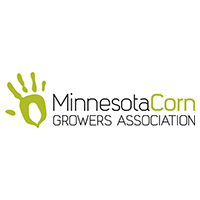
Minnesota Corn Growers Association
As Minnesota residents continue to practice social distancing, social media provides a powerful and valuable tool to help keep people connected. For Minnesota’s farmers, it provides a stage to have conversations about agriculture and share their passion for growing and raising crops and livestock. But social media can sometimes open up users to challenging conversations as well.
Roxi Beck works with the Center for Food Integrity in helping farmers and others involved in agriculture better connect with consumers. Social media is a great avenue to make those connections, but it’s important to recognize that it takes some caution, care and empathy to help keep the conversation on track.
First, Beck stresses the need to first approach conversations with the right mindset.
“I can’t reinforce this enough: Do not confuse a concerned public with something you are being attacked for,” Beck said. “Sometimes curiosity from the consumer can feel like criticism, but you have to be grateful they are asking these questions. It is a privilege to be able to answer them.”
A foundational skill for all conversations, Beck emphasizes the need to find shared values with the person asking questions. It is important to keep in mind we, as human beings, often have the same or similar concerns, so actively listen to the other individual and establish how you are working towards the same goals.
“Ask if they are saying something you actually agree with. When people are saying they are concerned about water quality, well I also want my water to be safe and here is what I am doing to ensure that,” Beck said.
Beck stresses that social media provides an opportunity for farmers to share their passion for agriculture, but it is vital to not lose sight that you are on stage visible by all. Watching your tone and stopping short of being combative is crucial. If a conversation is moving to a topic outside of your comfort zone; let that individual know you will find more information or another resource to connect them with, if appropriate.
Beck also acknowledges that sometimes a productive conversation is not possible. Knowing when to disengage is also an important skill on social media, according to Beck. If the conversation turns abusive, it is always time to move on, but also feel free to let the other person know it is time for you to go when the back-and-forth turns repetitive. She recommends giving yourself an out by asking if the person has any specific questions before you have to go, and leaving it at that.
In summary, social media tips from the Center for Food Integrity on what to consider when entering a conversation include:
- What is the issue and what values are being expressed? People are very concerned about the health and safety of their loved ones during this time and may lash out. Then ask if it is worth a response. If so, continue a conversation by sharing your values about the issue and relevant information.
- Engage with values: The goal with any conversation is to help the person understand where your values align—that there are goals you share. Arguing will get you nowhere. It only deepens the divide.
- Engage others to comment on the issue: Consider enlisting allies who would be willing to provide support.
- Agree to disagree: After a few exchanges, you may be able to determine that this person doesn’t recognize your right to be involved in agriculture and food production. Or take your conversation offline by offering to connect via email or a phone call.
For more information on the Center for Food Integrity, visit FoodIntegrity.org.
Follow the Minnesota Corn Growers Association on Twitter, Facebook or Instagram. Or click here for some helpful recommendations and reminders when starting a social media profile for yourself, or your local county corn organization.
